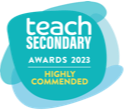How will these resources help you?
The results of the 2021 census showed that the religious demographic of the UK is shifting. The proportion of people who said they were Christian was 46.2 per cent, down from 59.3 per cent in the last census in 2011. In contrast, the number who said they had no religion increased to 37.2 per cent of the population, up from a quarter. Sociologists, such as David Voas, predict that these trends will continue in the years to come. Therefore, helping students understand non-religious worldviews such as humanism is a vital part of a broad and balanced curriculum. These resources will help you better understand, and teach, humanism to your students by providing suggestions for reading and examples to use with your students.
A history of humanism
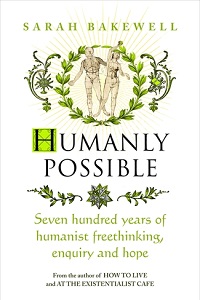
Humanly Possible
by Sarah Bakewell, published by Penguin, (2023), 9781784741662
Bakewell is a wonderful author whose writing brings human personalities and their ideas to life. The book charts 700 years of Humanist thought in a narrative that is engaging and full of interesting anecdotes. We are first introduced to Petrarch and Boccaccio’s Renaissance Humanism in fourteenth-century Italy and end in the modern day with the incredible life and work of the black American writer Zora Neale Hurston. But it is a document placed in the appendix that is a suggested resource for you to use with your students. The 2022 Declaration of Modern Humanism is an interesting text for students to read and explore. Questions to raise with your students could include: ‘Which section of the declaration is the most important?’; What is missing from the declaration and why?’; and ‘Which parts of the declaration do you most agree or disagree with?’.
What is humanism?
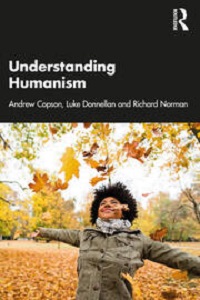
Understanding Humanism
by Andrew Copson, Luke Donnellan and Richard Norman, published by Routledge, (2022), 9780367506056
This textbook is the first written for the purpose of explaining Humanism to an undergraduate audience. As such it is a very useful resource for teachers wanting to develop their subject knowledge of Humanism. It offers an easy-to-read overview of the history, beliefs, practices and values of Humanism. The first three paragraphs of Chapter 1 could be used to introduce your students to Humanism at the start of their learning. The second paragraph talks about two different types of Humanists and provides data on Humanism in the UK. An interesting question to raise with students is: Do you have to be a member of a Humanist organisation to be a Humanist?
Life after death?
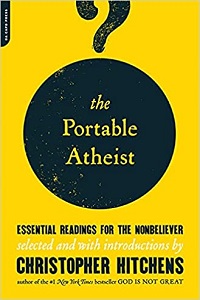
The Portable Atheist: Essential Readings for the Non-Believer
by Christopher Hitchens, published by Da Capo Press, (2007), 9780306816086
Christopher Hitchens was one of the most polemical writers of his generation and one of the most influential atheists of the twentieth century. He is perhaps most famous for his international bestselling book God is Not Great. But it is this collection of non-religious works, personally selected and introduced by Hitchens, which I would recommend. An eclectic mix, it contains works by authors including Mark Twain, Albert Einstein, George Eliot and Emma Goldman. A particularly interesting chapter relates to the infamous ‘near death experience’ of A.J. Ayer, whose work on the philosophy of language is featured on most A-Level specifications. Your students’ understanding of Ayer would certainly benefit from reading his refutation of the claim that he had any kind of religious conversion.
Man is the measure of all things
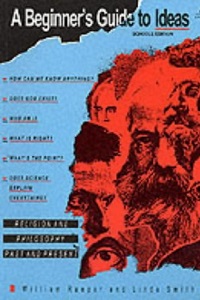
A Beginner’s Guide to Ideas
by William Raeper and Linda Smith, published by Lion Books, (1991), 9780745921365
I will make the bold claim that this is the finest textbook on religion and philosophy aimed at secondary students. Tragically it is out of print and I would urge you to find a second-hand copy. The title of Part 8 of the book ‘Is Man the Measure of All Things?’ borrows its title from the Greek philosopher Protagoras, who is considered to be one of the founders of agnosticism. The three chapters that make up this section of the book on humanism cover some incredibly interesting ground. Firstly, Erasmus and the idea ‘Christian Humanism’, secondly Nietzsche and the ‘Death of God,’ and finally John Stuart Mill’s utilitarianism. Each chapter concludes with summary questions to gauge understanding and encourage debate.
Audiovisual clip

Secular Believers - Belief without God – agnosticism, humanism and free thinking
published by BBC Two, (2017)
Non-religious people from different backgrounds discuss their thoughts on religion and the existence of God.
Further materials
The Little Book of Humanism: Universal lessons on finding purpose, meaning and joy by Andrew Copson and Alice Roberts, published by Hachette, (2020), 9780349425467
Find this book
Seven Types of Atheism by John Gray, published by Penguin, (2019), 9780141981109
Find this book
Neil McKain is a Head of Religious Studies with over fifteen years teaching experience across both the state and independent sectors. He graduated in Theology and RS from the University of Leeds and holds an MA in Philosophy and Religion from the University of London. Neil has served on the executive board of the National Association for Teachers of RE (NATRE) for the last nine years and is a published author of student textbooks as well as articles on RE more generally. He is currently the vice chair of Humanists UK.
Text © Neil McKain, 2023.
Text © Neil McKain, 2023.


